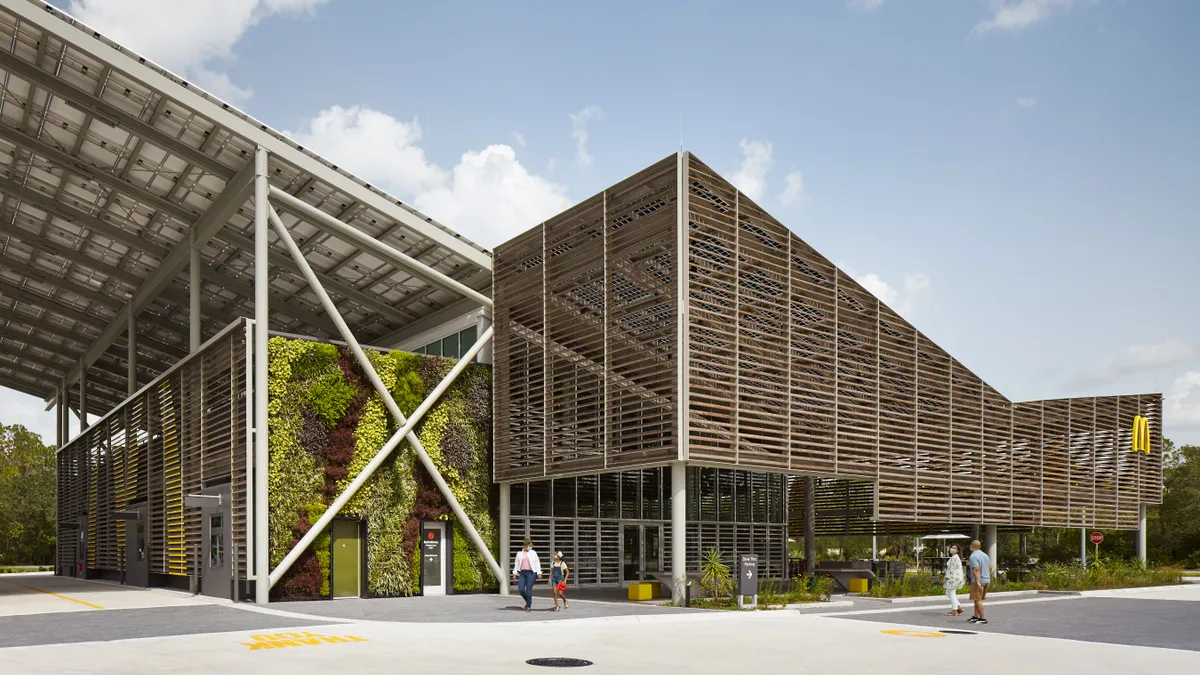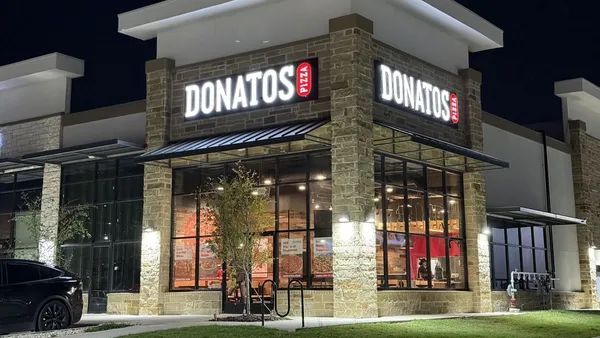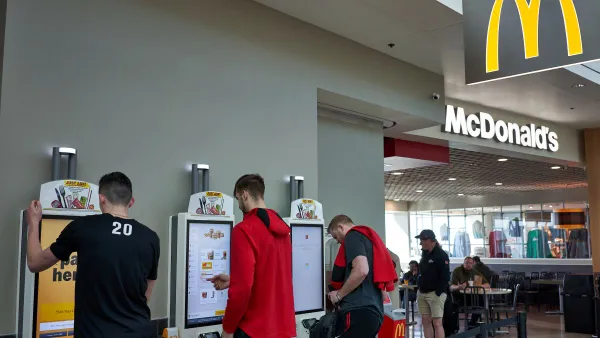Dive Brief:
- McDonald’s completed its first net zero energy restaurant, located near Disney’s All-Star Resorts in Orlando, Florida, according to a company press release. The global flagship restaurant is designed to create enough renewable energy on-site to cover 100% of its energy needs annually.
- The restaurant will serve as a hub to test solutions that can reduce energy and water use. The company will leverage its learnings to achieve its global sustainability targets, which include a 36% reduction in greenhouse gas emissions by 2030.
- McDonald’s is also pursuing the International Living Future Institute’s Zero Energy Certification with this restaurant.
Dive Insight:
According to the International Living Future Institute, McDonald's is the first in the world to pursue Zero Energy Certification. Net zero energy projects save money not just on actual utilities costs, but also because more cities and states are now offering subsidies or rebates for buildings powered by solar energy.
This flagship McDonald’s restaurant, which spans over 8,000 square feet, is able to achieve net zero energy use in a number of ways. It includes 1,066 solar panels, for example, as well as low-flow plumbing fixtures, water-draining pavers, over 1,700 square feet of plant-covered walls and outdoor porch skylights featuring solar glass panels. While the restaurant is only open for drive-thru and McDelivery at this time, once the restaurant's dining room opens, customers will be able learn about the restaurant’s renewable energy features and generate power to light up the Golden Arches via stationary bikes.
This new restaurant has significant potential to provide learnings not just for the McDonald’s system, but also for the entire industry. Perhaps the biggest opportunity is in the kitchen. According to Fast Company, the restaurant will also include cooking equipment tests, such as more efficient coolers and freezers and burger cookers that go on standby when there are fewer customers. Restaurants’ biggest energy use comes from cooking, and operators may be more willing to implement more efficient equipment that generates a quicker return on investment than they would be in solar panels, for example.
This restaurant joins a long and growing list of green initiatives from McDonald's. In March 2018, McDonald’s claimed to become the first restaurant company in the world to set a science-based target to reduce global greenhouse gas emissions. In late 2019, McDonald’s invested in wind and solar energy to expand the amount of renewable energy available in the U.S. According to the company, these investments mean it will be able to add more renewable energy to the power supply than any other U.S. restaurant company to date and will equal enough electricity to power over 2,5000 McDonald's restaurants.
As more consumers pay attention to environmental stewardship, sustainability efforts have helped major brands investing in green energy and other eco-friendly initiatives gain a competitive edge. According to a 2019 survey from the Culinary Visions Panel reported by PMQ Pizza Magazine, 83% of consumers said they wish restaurants would use more environmental-friendly practices, including leaving "a light carbon footprint behind." A recent Nielsen study found that nearly 75% of millennials are willing to pay extra for sustainable offerings.
This dynamic has driven major sustainability-focused trends among QSRs. Starbucks announced last summer it will power 3,000 locations with clean energy by 2021, for example, while Yum Brands has begun the necessary work to join the Science-Based Targets Initiative. Yum's subsidiary KFC is tapping solar energy for some of its store locations across the globe, and Wendy's has also been working on new ways to reduce its energy consumption by using more efficient equipment.
The pandemic may have heightened this focus even more. New research from FCMG Gurus finds that, in April, 55% of global consumer stated they were more concerned about the environment due to the coronavirus. In May, it rose to 60%.
Marion Gross, McDonald’s North America chief supply chain officer, reiterated this in a statement: "These unprecedented times have only heightened the importance of innovation that fosters long-term security and sustainability."













